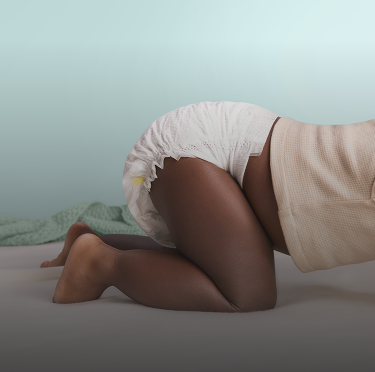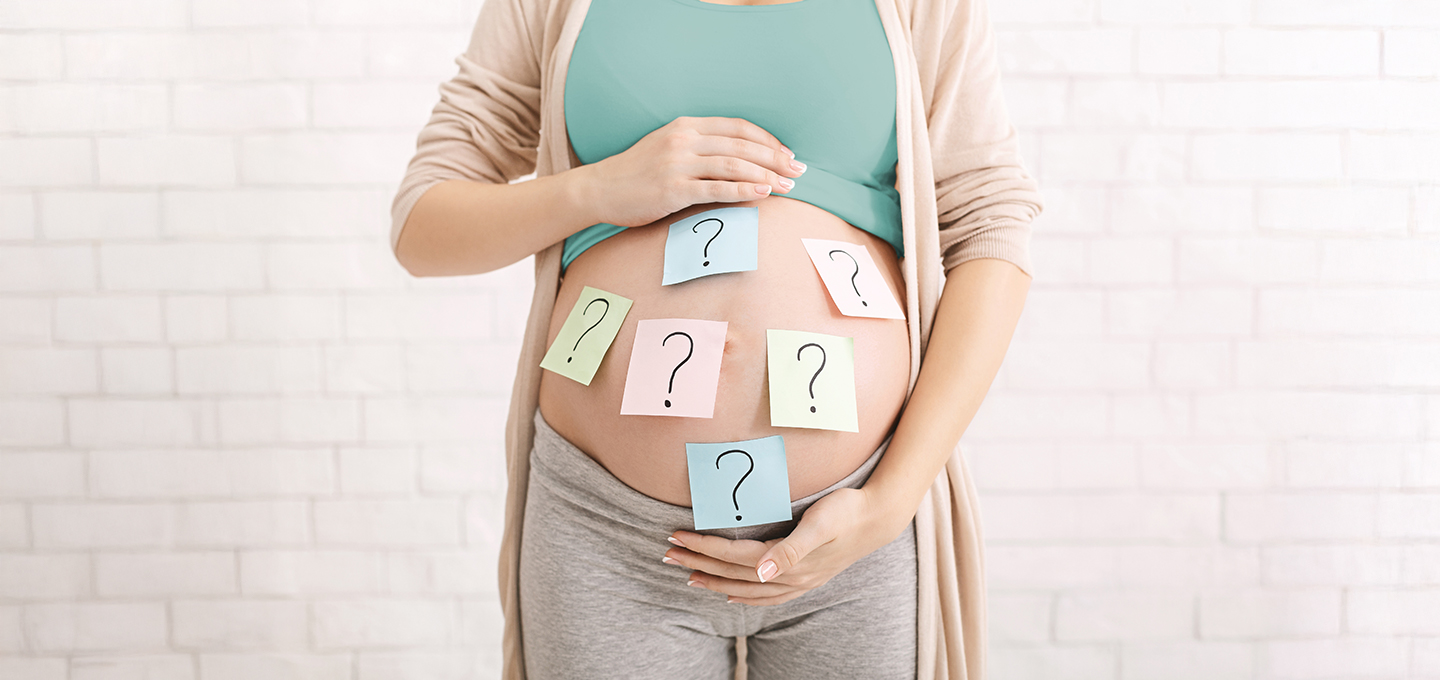
What Determines the Sex of a Baby and When Can You Tell the Gender?


Key Takeaways
One of the most exciting moments in a pregnancy journey is learning the biological sex of your baby—that is, if you want to find out before their big arrival! But what (and perhaps who) determines the sex of a baby? This exciting milestone occurs at the moment of fertilization, though you won’t know whether you’re having a girl or boy until later in your pregnancy. Read on to learn more about how it all happens, what and who determines the sex of a baby, and when you (with the help of an ultrasound and your healthcare provider) can tell the gender.
What Determines the Sex of a Baby?
Are you ready to walk down memory lane and channel your high school biology class? You might remember that nearly each cell in the human body has a total of 46 chromosomes, making up our genetic material. Your baby starts off with just one cell: the combination of an egg and a sperm. But when it comes to what determines the sex of a baby, only two of those chromosomes in that initial cell play a role.
At the moment of fertilization, one chromosome from the sperm and one from the egg determine the sex of the baby. These are aptly known as the sex chromosomes, and every egg has an X chromosome while each sperm has either an X or a Y chromosome.
So, when does an embryo become male or female? It’s up to chance and depends on which sperm reaches the egg first and fertilizes it:
Who Determines the Sex of the Baby?
Perhaps you’ve wondered which parent determines the gender of the child? It takes two to tango, but scientifically, it only takes the sperm to determine the baby’s sex. The egg will always have an X chromosome, so it’s up to the sperm to decide.
At the point of ejaculation, up to 1 billion (yes, billion!) sperm are released, which then attempt to move through the vagina, cervix, and uterus to reach the fallopian tubes. For a microscopic sperm, this is quite a long journey, and many are lost along the way. Out of that original billion, up to 100 will attempt to penetrate the egg, and whichever does it successfully will create a little zygote with the egg.
Of course, it’s all chance, as in which sperm reaches the egg first and successfully penetrates it, so when asking who determines the sex of the baby, it’s less about who does it and more about how it happens.
Common Questions About Baby Sex Determination
Though baby sex determination is relatively straightforward from a scientific standpoint, there are many questions that soon-to-be parents commonly ask regarding what determines the sex of a baby, and we’re here to help answer them.
When Can You Tell the Gender of Your Baby?
When and how gender is determined is top of mind for many expectant parents, especially if they’re planning to host a gender reveal party. (If this is something you're considering, check out these gender reveal ideas that can help make your celebration a memorable one!)
Though fertilization is when your baby’s biological sex is determined, you won’t be able to know this exciting piece of information until about halfway through your pregnancy. If you wish to know whether you’re having a boy or girl, inform your healthcare provider prior to your 20-week ultrasound.
The midpoint of pregnancy is when boy or girl genitalia parts are visible enough on an ultrasound to make a determination. Fetal genitalia development is influenced by your baby’s sex chromosomes:
Can the Gender of Baby Change During Pregnancy?
Sex determination of a baby happens during fertilization, and it can’t change during your pregnancy. However, there’s a slim chance that the provider could read the 20-week ultrasound incorrectly and tell you you’re having a girl (or a boy) when the opposite is true.
Basically, there’s no 100 percent accurate way to determine a baby’s gender before birth. If you want to have a little fun while you wait for the big moment, read up on some silly old wives’ tales for gender prediction. Maybe your pregnancy cravings will give it away!
Chances of Having a Girl vs. a Boy
Why do I keep having girl babies, or why do I only have boy babies? You aren’t the only parent asking yourself these questions!
Again, we know that the sperm’s chromosome is what determines the sex of a baby. If we assume that the male produces the same amount of X-chromosome sperm as Y-chromosome sperm, probability dictates that the chance of having a girl would be the same as the chance of having a boy. Most experts concur that the chances of having a girl vs. boy are around 50:50. And this goes for each time you have a child, so the odds of having a girl after a boy would still be about 50:50.
But what if the male does not produce the same amount of each type of sperm? This is an ongoing scientific inquiry, with no firm results at this point, that could alter the ratio.
Can You Influence Your Baby’s Sex?
If you really wanted to have a girl or boy, you might wonder, can you influence a baby’s gender in terms of biological sex? Science hasn’t come that far, and the jury’s still out on whether parents could (and ethically should) be able to choose the sex of their baby.
Can Babies Be Born With Both Sexes?
It’s rare, but a baby could be born with what’s called ambiguous genitalia, which could mean one of two things:
Another name for a discrepancy between external and internal genitalia is intersex, or disorders of sex development (DSDs). Again, it’s rare for a baby to be born with incomplete genitals, characteristics of both sexes, or a discrepancy between genitalia, but it may be detectable either before birth or shortly after. In these cases, your healthcare provider will be your go-to support, offering information about whether treatment is necessary.
FAQS AT A GLANCE
A baby’s biological sex is determined by the two sex chromosomes in the egg and sperm. Eggs always have an X chromosome, and sperm have either an X or a Y chromosome. Whichever sperm is the winner will penetrate and fertilize the egg, creating either an XX (girl) or XY (boy) pair.
The Bottom Line
What and who determines the sex of a baby? It all boils down to good old-fashioned science, along with chance, and happens very early on during the fertilization process. The two sex chromosomes in the egg and sperm are what determine whether you’ll have a boy or girl. Eggs always have an X chromosome, and sperm have either an X or Y chromosome. Whichever sperm is the winner will penetrate and fertilize the egg, creating either an XX (girl) or XY (boy) pair.
Though your baby’s sex is determined at fertilization, fetal genitalia development won’t be apparent visually until later in your pregnancy. You’ll need to wait for your mid-pregnancy ultrasound before learning if you’re having a boy or girl, generally a 50:50 chance.
While you wait in anticipation, download the Pampers Rewards app to earn rewards on all those future diaper purchases, and try our Chinese Gender Predictor below! It’s not a scientific way of determining your baby’s sex, but it’s sure a fun way to pass the time!

Chinese Gender Predictor
Can't wait to know whether your little one's a boy or a girl? Try our fun tool!- Book: Guide to a Healthy Pregnancy, Second Edition Paperback – 2018 by Mayo Clinic, Myra J. Wick, M.D., Ph.D. (Author)
- Cleveland Clinic: Pregnancy: Prenatal Ultrasonography
- Frontiers: New Biological Insights on X and Y Chromosome-Bearing Spermatozoa
- KidsHealth: Pregnancy Week 2
- Mayo Clinic: Ambiguous genitalia
- Medline Plus: Chromosomes
- Medline Plus: Is the probability of having twins determined by genetics?
- PubMed.gov: The ratio of X- and Y-bearing sperm in ejaculates of men with three or more children of the same sex
Read more about Pregnancy
Join a World of Support
through Pregnancy and Parenthood.
TRACK WITH TOOLS
LEARN WITH EXPERTS
GET REWARDED








